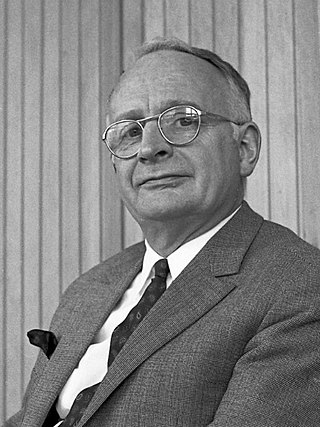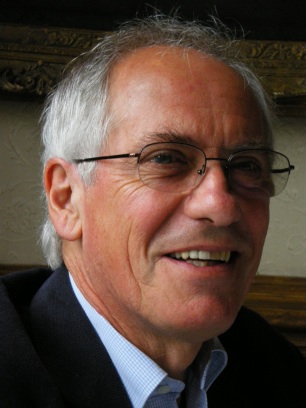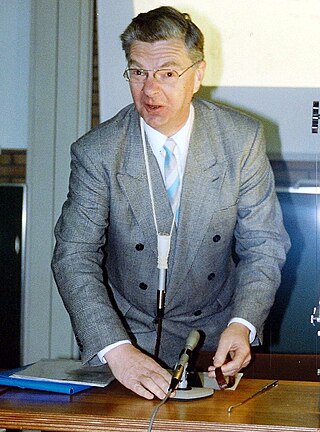
Stephen Richard "Steve" Bourne is an English computer scientist based in the United States for most of his career. He is well known as the author of the Bourne shell (sh), which is the foundation for the standard command-line interfaces to Unix.

Adriaan "Aad" van Wijngaarden was a Dutch mathematician and computer scientist. Trained as a mechanical engineer, Van Wijngaarden emphasized and promoted the mathematical aspects of computing, first in numerical analysis, then in programming languages and finally in design principles of such languages.
ALGOL X was the code name given to a programming language which was being developed as a successor to ALGOL 60, by the International Federation for Information Processing (IFIP) IFIP Working Group 2.1 on Algorithmic Languages and Calculi, which supports and maintains the languages ALGOL 60 and ALGOL 68. It attempted to find a "short-term solution to existing difficulties". ALGOL N and ALGOL W were two other ALGOL versions proposed to fulfill this need.

Nobuo Yoneda was a Japanese mathematician and computer scientist.
David A. Turner is a British computer scientist. He is best known for designing and implementing three programming languages, including the first for functional programming based on lazy evaluation, combinator graph reduction, and polymorphic types: SASL (1972), Kent Recursive Calculator (KRC) (1981), and the commercially supported Miranda (1985). Miranda had a strong influence on the later Haskell.
The ZEBRA was one of the first computers to be designed in the Netherlands, and one of the first Dutch computers to be commercially available. It was designed by Willem van der Poel of the Netherlands Post, Telegraph and Telephone, and first delivered in 1958. The production run consisted of fifty-five machines, manufactured and marketed by the British company Standard Telephones and Cables, Ltd.
John Edward Lancelot Peck was the first permanent Head of Department of Computer Science at the University of British Columbia (UBC). He remained the Head of Department from 1969 to 1977.
Barry James Mailloux obtained his Master of Science (M.Sc.) in numerical analysis in 1963. From 1966, he studied at Amsterdam's Mathematisch Centrum under Adriaan van Wijngaarden, earning a Doctor of Philosophy (Ph.D.) in 1968.

Cornelis Hermanus Antonius "Kees" Koster was a Dutch computer scientist who was a professor in the Department of Informatics at the Radboud University Nijmegen in the Netherlands.

Richard Simpson Bird was an English computer scientist.
Lambert Guillaume Louis Théodore Meertens or L.G.L.T. Meertens is a Dutch computer scientist and professor. As of 2020, he is a researcher at the Kestrel Institute, a nonprofit computer science research center in Palo Alto's Stanford Research Park.
Thomas Stephen Edward Maibaum Fellow of the Royal Society of Arts (FRSA) is a computer scientist.
Charles Hodgson Lindsey was a British computer scientist, most known for his involvement with the programming language ALGOL 68.
Klaus Samelson was a German mathematician, physicist, and computer pioneer in the area of programming language translation and push-pop stack algorithms for sequential formula translation on computers.
Eiiti Wada is a computer scientist and emeritus professor at the University of Tokyo and the Research Director of Internet Initiative Japan (IIJ), a computer network technology company. He is one of the creators of the Happy Hacking Keyboard.
IFIP Working Group 2.1 on Algorithmic Languages and Calculi is a working group of the International Federation for Information Processing (IFIP).
Charles Katz is an American mathematician and computer scientist known for his contributions to early compiler development in the 1950s.

Michel Sintzoff was a Belgian mathematician and computer scientist.
Joseph Henry Wegstein was an American computer scientist.
Gerrit van der Mey was a deafblind Dutch mathematician. He helped create software for PTERA and ZEBRA, some of the first computers designed in the Netherlands, as well as creating compilers for later computers. In 1982 he was made a member of the Order of Orange-Nassau at the grade of knight.





